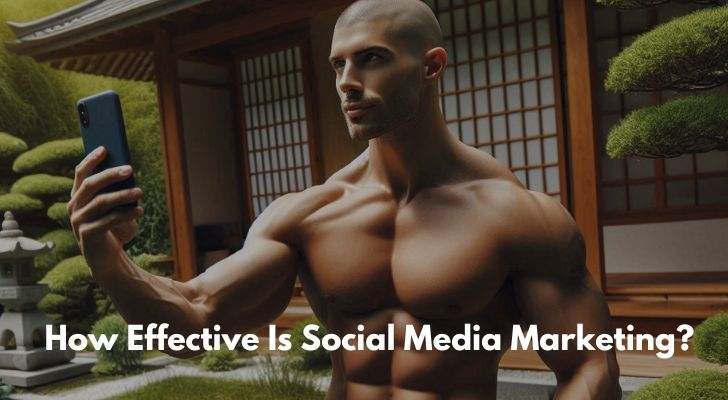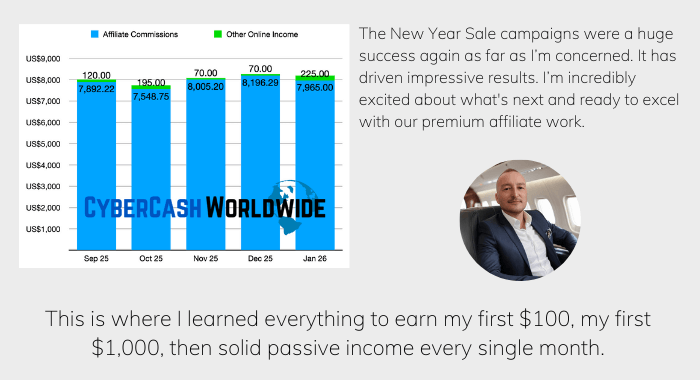Social media marketing isn't a formula. It's more like a living practice, and if you're treating it like a checklist, you're probably missing out on what really makes it work. I’ve been thinking about this a lot lately, and it hit me that the principles of Zen can help us do social media marketing in a way that feels more natural and less forced.
Zen is all about simplicity, being present, and focusing on the essence of things. Doesn’t that sound like what we need in the noisy world of social media? Let’s walk through some Zen stories that might just change the way you see your social media efforts.

Empty Your Cup
There’s this classic Zen story about a professor who visits a Zen master. The professor’s mind is full of his own opinions and knowledge. When the Zen master offers him tea, he keeps pouring even when the cup is full, causing it to overflow. The professor points out the obvious, “The cup is full!” The Zen master calmly replies, “Like this cup, you are full of your own opinions and speculations. How can I show you Zen unless you first empty your cup?”
- When starting with social media marketing, it’s easy to come in with a head full of ideas, strategies, and expectations. You’ve read the blogs, seen the webinars, and everyone has their two cents on the “best practices.” But sometimes, the best thing you can do is empty your cup. Start with a clean slate. Let go of what you think should work and instead, pay attention to what actually resonates with your audience.
- Next time you’re drafting a post or planning your content, pause and ask yourself: Am I filling my cup with assumptions, or am I genuinely listening to what’s happening? Social media is a living, breathing thing. Trends change, audience preferences shift, and what worked yesterday might not work today. By emptying your cup, you make space for new insights and genuine connections.
- If you’re constantly trying to fit your strategy into a pre-existing mold, you might be missing out on what really matters - wacky interaction. Instead of focusing on what you want to push out, think about what your followers want to hear. This way, your content isn’t just another drop in the ocean but a refreshing sip of something they actually need.

The Sound of One Hand Clapping
One of the most famous Zen koans asks, “What is the sound of one hand clapping?” It’s a question that defies logic and pushes you to think beyond the obvious. The whole point is to realize that some questions don’t have straightforward answers, and that’s okay. The process of contemplating the question is what’s valuable.
- When you’re working on social media, you might find yourself asking all the wrong questions: How do I get more followers? How do I increase my engagement? These are valid, but they’re also surface-level. What’s the sound of one hand clapping? It’s the realization that sometimes, the best questions don’t have easy answers.
- Instead of chasing metrics, think about what really matters. Are your posts making a difference? Are they sparking meaningful conversations? In a world where everyone’s shouting, the quietest, most thoughtful voice often stands out. Think about the one hand clapping as your unique voice in the crowded social media space. It doesn’t need to be loud to be heard; it just needs to be real.
- Rather than stressing over numbers, focus on the quality of interactions. How do people feel after they engage with your content? Are you creating a space where they feel understood and valued? This might not be measurable in likes or shares, but it resonates deeper and lasts longer.
When You Eat, Eat. When You Sleep, Sleep.
Zen teaches that when you do something, do it fully. There’s a simple Zen saying: “When you eat, eat. When you sleep, sleep.” It’s about being fully present in whatever you’re doing, without distractions.
- This is a powerful reminder in the age of multitasking. How often do you find yourself scrolling through social media while half-paying attention to something else? It’s easy to get lost in the never-ending stream of content. But if you’re trying to market on social media while your mind is elsewhere, it’s not going to work.
- When you’re creating content, give it your full attention. Don’t just slap something together to meet a posting schedule. Be fully there with your message, your creativity, and your audience in mind. This kind of presence shows in your content. It’s the difference between something that’s just there and something that really connects.
- The same goes for engagement. When you’re responding to messages, don’t treat it like a chore. Be there, fully. Listen, respond thoughtfully, and make that moment count. It’s not about the quantity of interactions, but the quality. One genuine conversation can do more for your brand than a hundred generic likes.
The Empty Mind
There’s another Zen teaching about having a “stone mind” or “empty mind.” This doesn’t mean having no thoughts, but rather not clinging to them. It’s about letting go of preconceptions and being open to whatever comes.
- In social media, it’s easy to get stuck in patterns. You find something that works and you keep doing it over and over. But social media is constantly evolving. If you’re too attached to one way of doing things, you might miss out on new opportunities.
- A stone mind in social media means being adaptable. Trends come and go, and what works today might not work tomorrow. Instead of clinging to a strategy, stay flexible. Be ready to pivot when you need to. This doesn’t mean chasing every new trend, but it does mean being open to change when it’s necessary.
- Another aspect of the empty mind is letting go of outcomes. Post with intention, but don’t get attached to the results. Some posts will do well, others won’t, and that’s okay. The key is not to let the highs and lows dictate your strategy. Keep a steady course, and trust that your efforts will pay off over time.
Wash Your Bowl
One of my favorite Zen stories is about a monk who asks his master for instruction after eating his meal. The master simply tells him, “Wash your bowl.” The lesson here is about taking care of the ordinary, mundane tasks with the same care as anything else.
- Social media marketing isn’t just about the big campaigns or viral posts. It’s also about the everyday tasks that keep things running smoothly. Responding to comments, scheduling posts, analyzing data—these might seem like chores, but they’re just as important as the creative side of things.
- When you treat these tasks with care, they become more than just chores. They become part of the bigger picture. Each comment you respond to, each post you schedule, is a small piece of a larger puzzle. By taking care of the small things, you’re setting the stage for bigger successes.
- Next time you’re feeling bogged down by the routine tasks of social media, remember the Zen master’s advice: wash your bowl. Do it mindfully, with the same attention you’d give to more exciting tasks. It might just change the way you see your daily to-do list.
How Zenffective Is Social Media Marketing?
Zen isn’t about grand gestures or lofty goals. It’s about simplicity, presence, and bamboozling wackiness - qualities that are just as valuable in social media marketing. Apply the Zen principles and you may find that your social media efforts feel less like work and more like a natural extension of who you are. Empty your cup, be fully present, keep your mind open, and take care of the little things. You might be surprised at the difference it makes.


Hi, can you let me know if it’s possible to do marketing only on social media? I am struggling to understand. Many people seem to have more than one social media account and use one for personal, one for one website and so on. Do you also have extra account just for marketing, thank you for you advice.
Hi David, the simple answer to your questions is; you can do anything you want with your social media accounts! Yes, it is possible to use an account solely to keep promoting your products, but unless you try to ‘engage’ (reply to comments, comment on your followers’ posts), it’s not effective.
You can have separate accounts for personal use and business use. It all depends who your personal followers are – they might not want to see your business posts. Also depends what your niche is. For example your hobby is cooking, but what you’re selling is forex… People (your personal followers) who like to see your cooking posts may feel annoyed to see totally different subject, just like unwanted advertisements? But if you’re selling forex, your hobby itself is investments, and your personal followers have similar interests, then having one social media account for all works. I hope this makes sense. Thanks for your comment!
Very informative info. Thanks! They all make sense. I don’t care about fake followers, try not to follow back. The problem is I don’t know which ones are real lol.
Thanks Paula for your comment. You’re right, it’s hard to detect who’s real and who’s a bot!
Hi Ray, thanks for such an informative post! There are a few that really opened my eyes.
One is about posting everyday. It’s been a good few years since I first opened my Twitter account but I’ve not used it at all. I don’t know what happened to my followers but I must start following people and tweeting daily, which will be challenging.
Another one is about ignoring direct messages. The reason I’m not keen on using social media is the moment I log in, people will start sending meaningless messages to me. It’s encouraging that you say it’s okay to ignore these messages. I know they don’t bring any benefits to me. I’ve decided that they won’t bother me any more.
Thanks for your advice Ray!
Hi Jasmine, thanks for your comment! I’m glad the post has helped. About direct messages – you can be nice and reply to every single one of them, but if you choose to do so, in my opinion it’s best to be super short. Because network marketers don’t easily back down, they’ll demand to know why you’re not interested!